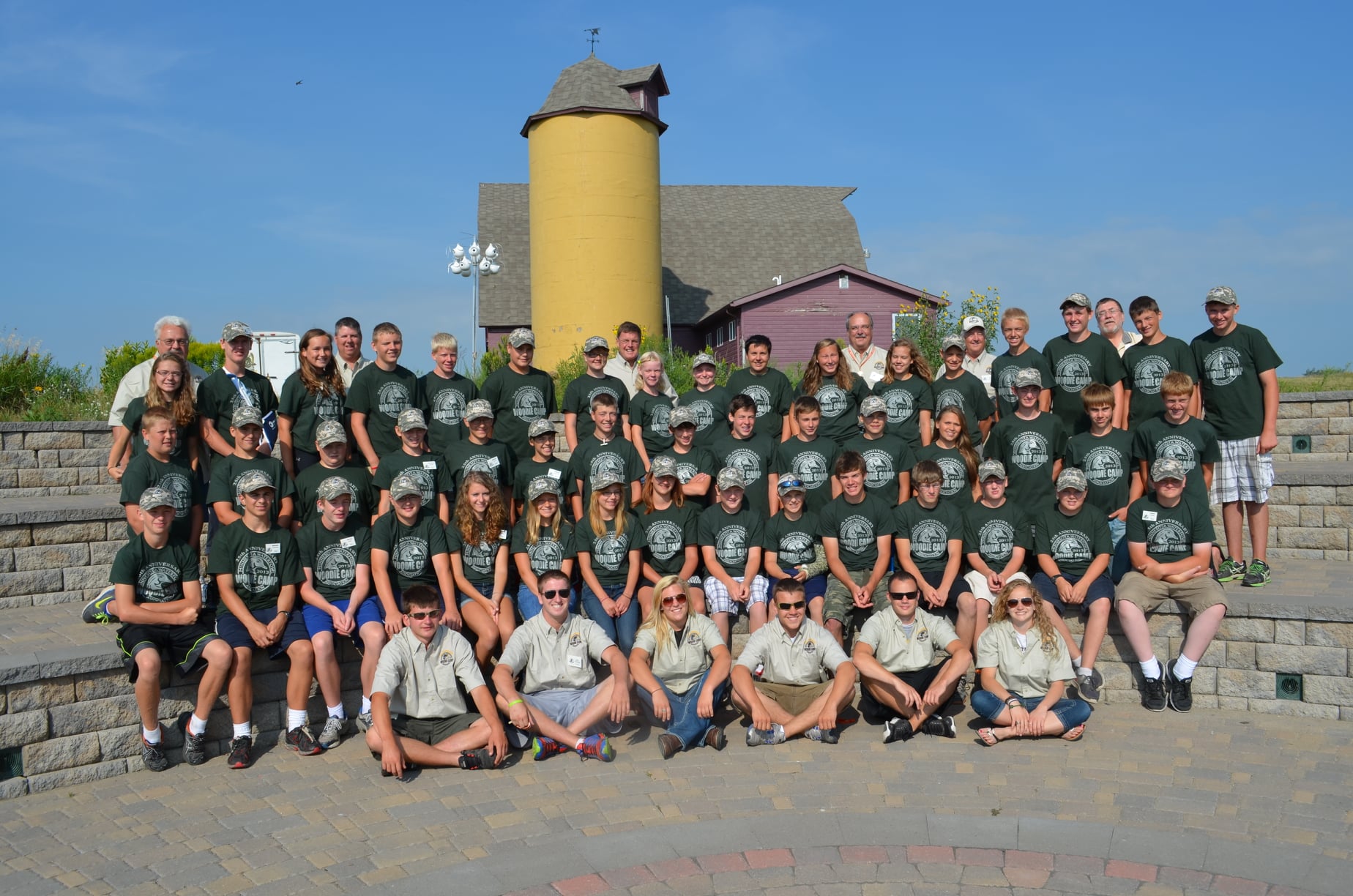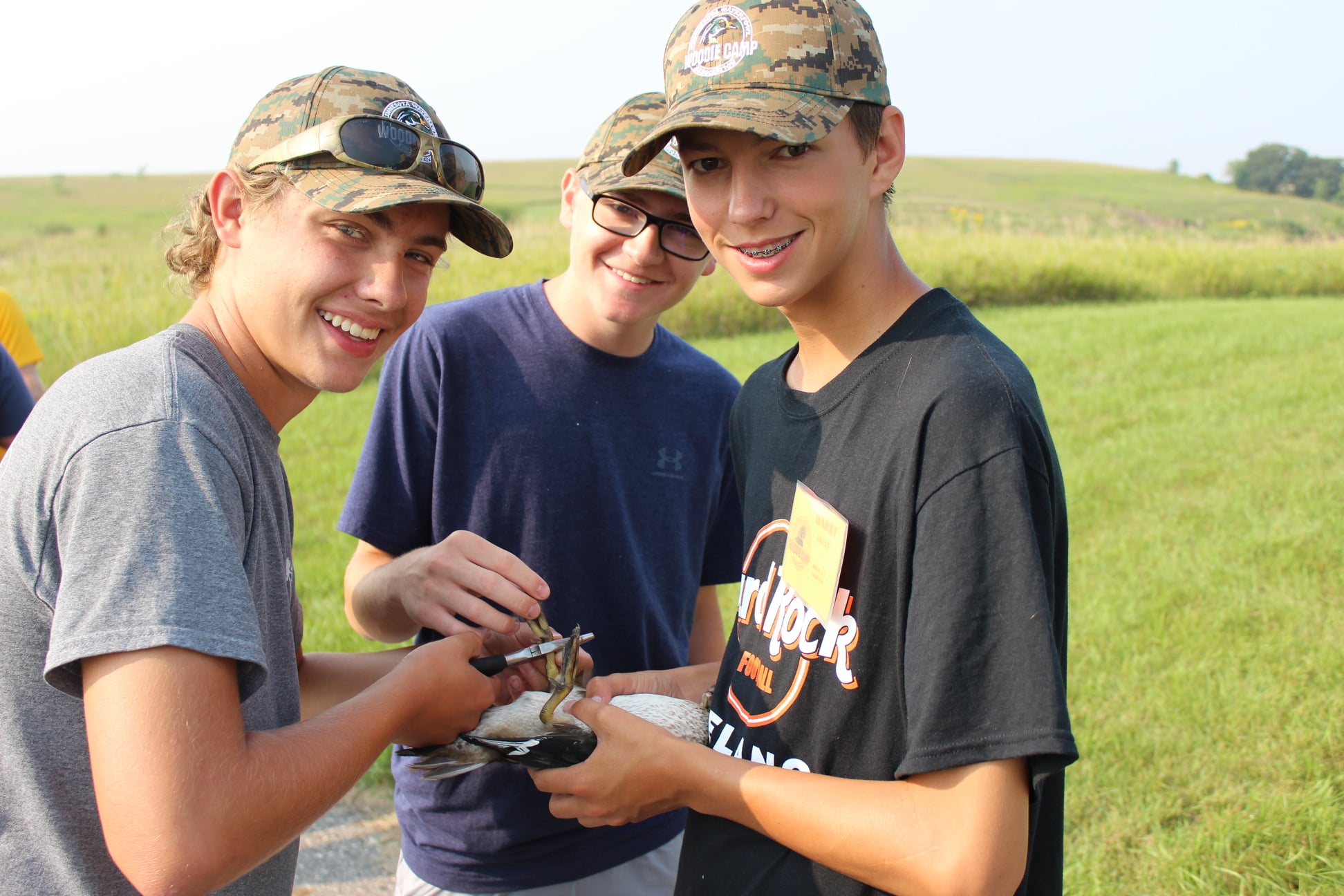Connecting kids with the outdoors in a culture where being “plugged-in” has become the norm is an ever-growing challenge. A quick internet search on “ways to connect kids with the outdoors” produces literally thousands of ideas and advertisements for how this is best achieved. Thanks to long-standing efforts by the Prairie Pothole Joint Venture and the support of local partners and educators, getting kids outside at the Prairie Wetlands Learning Center has become a little easier.
More than 15 years ago, the PPJV began making a small investment in support of programs that provide youth with outdoor experiences and target educators interested in outdoor teaching techniques designed to benefit the students they serve. Two such programs, Summer Explorers Biology Camp and Teaching in the Outdoor Classroom Workshop, strive to link educational goals with the scientific work conducted by the U.S. Fish and Wildlife Service (FWS). Each year for the past 15 years, 60 5th and 6th-grade campers and 15 preschool through 12th-grade educators became involved in the scientific process as they observed professional biologists demonstrating mark and recapture techniques and participated in identifying and surveying organisms, analyzing data, and drawing conclusions.
The four-day residential workshop and three-day camp incorporate a rotating curriculum that uses mist-netting and songbird banding one year and fish nets the other year. As a result of the fish in wetlands investigation, campers and educators alike discover that although fish belong in water, they can create an ecological imbalance in prairie potholes to the detriment of waterfowl and other wildlife. They also gain an appreciation for monitoring bird population trends and the Service’s efforts to protect and manage birds and ecosystems along their migratory pathways.
Providing a two-year alternating format means that youth who come to camp both years can engage in two very different but important scientific experiences, both relevant to the work of the FWS and the ecology of the Prairie Pothole Region. The unique arrangement of involving educators with campers not only provides an immediate application piece for education pedagogy but also allows for the natural ripple effect of each teacher potentially impacting multiple years of students over time.
Every August since 1989, Fergus Falls Wetland Management District has hosted a weeklong residential gathering for 30-45 youth (ages 13-15) known as Woodie Camp. Woodie Camp was started by the Minnesota Waterfowl Association after witnessing steep declines in the number of waterfowl hunters and limited recruitment of new hunters. Based on license sales, the number of waterfowl hunters in Minnesota has declined by 43% since the 1970s and continues to decline today.
The goal of Woodie Camp is to inspire conservation learning and an appreciation for waterfowl hunting and the outdoors by immersing campers in a wide array of topics. Areas of instruction include nature journaling, outdoor photography, dog training, orienteering, decoy painting, wood duck house and mallard hen house construction, wetland and grassland ecology, waterfowl identification, waterfowl ecology, waterfowl population dynamics, and management practices. Campers even learn to clean ducks and try their hand at cooking in a friendly competition against other participants.
The vision for these programs is to ignite a passion for the outdoor world and an appreciation of wetlands and prairies through various teaching platforms. Exposing young people to our outdoor world is critical; they are the ones who will become our future conservation leaders. The role of partners in delivering each program is monumental and the PPJV is central to that effort. Funding through the PPJV activates and magnifies the contribution of other partners and expands the base of support for these highly successful programs.


